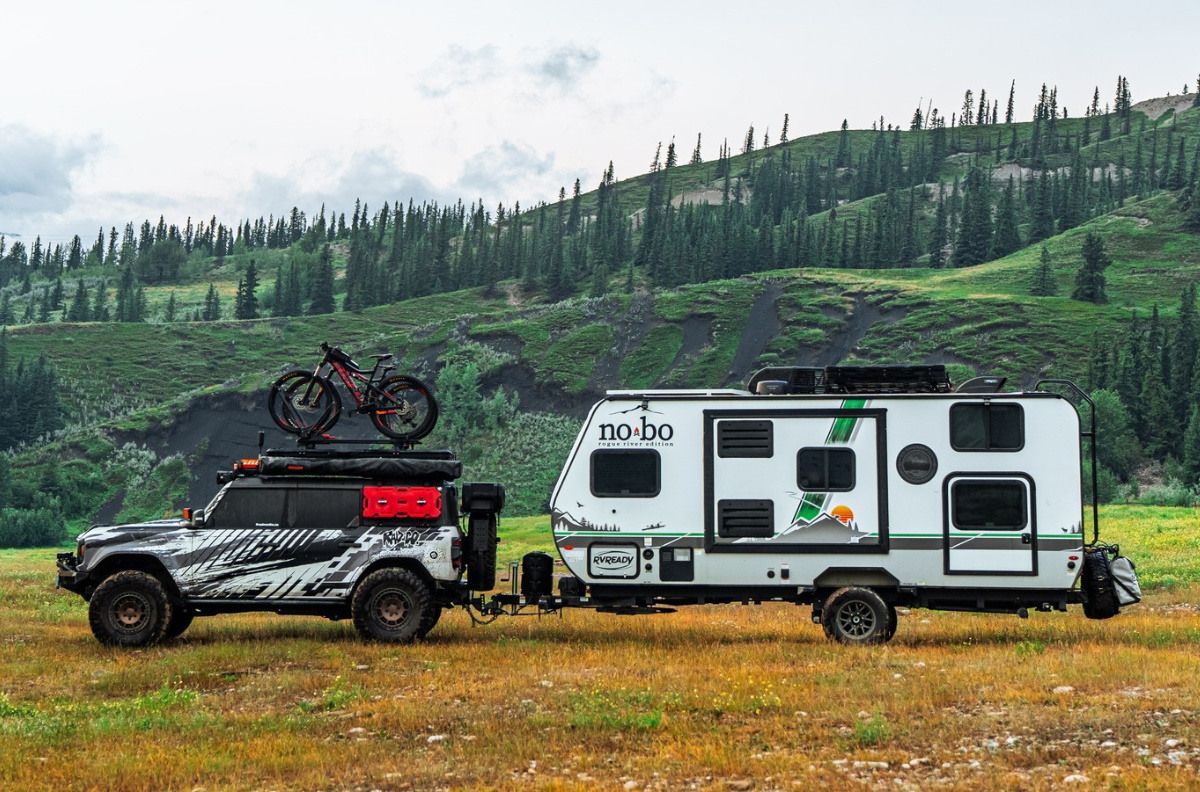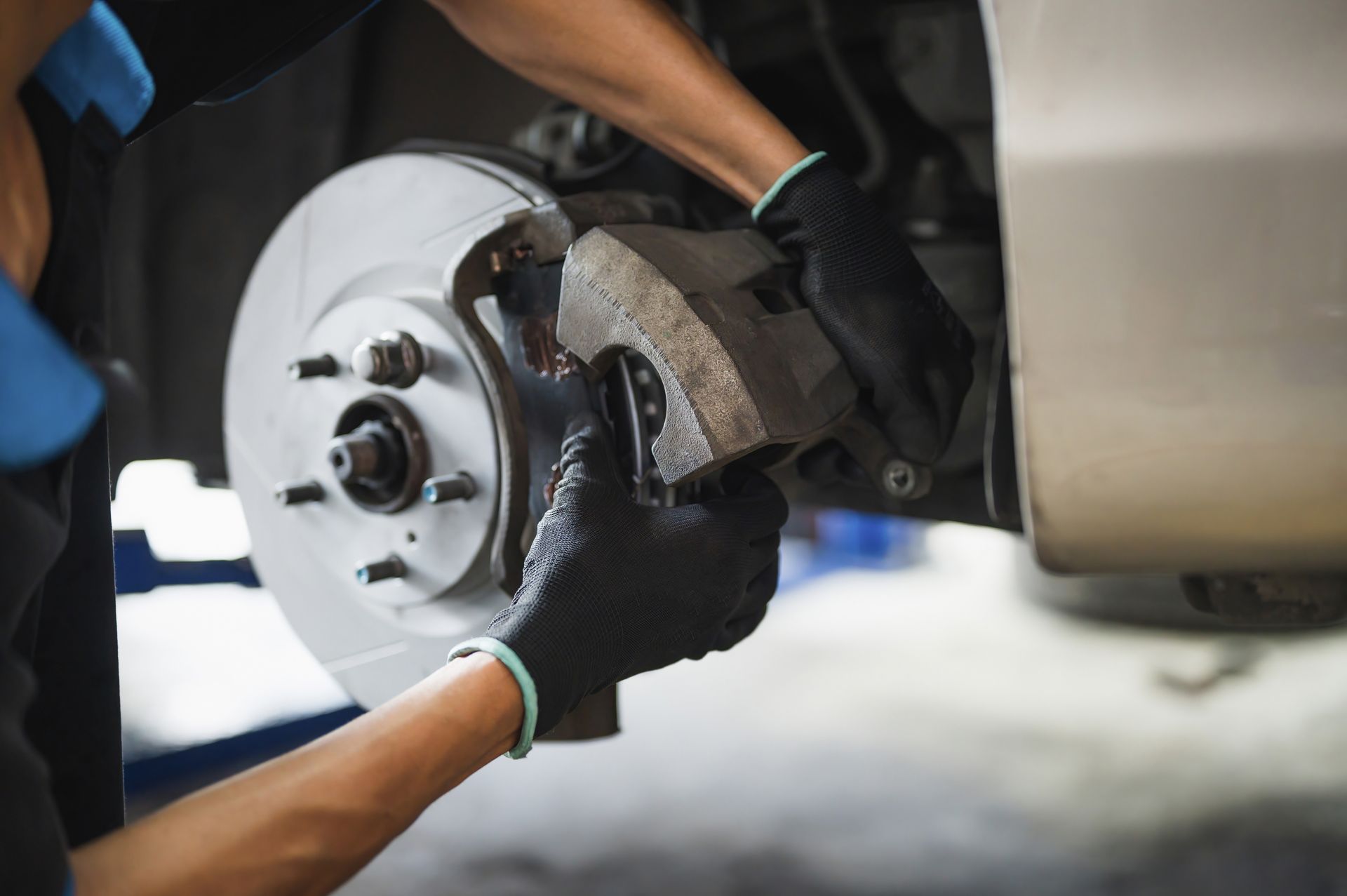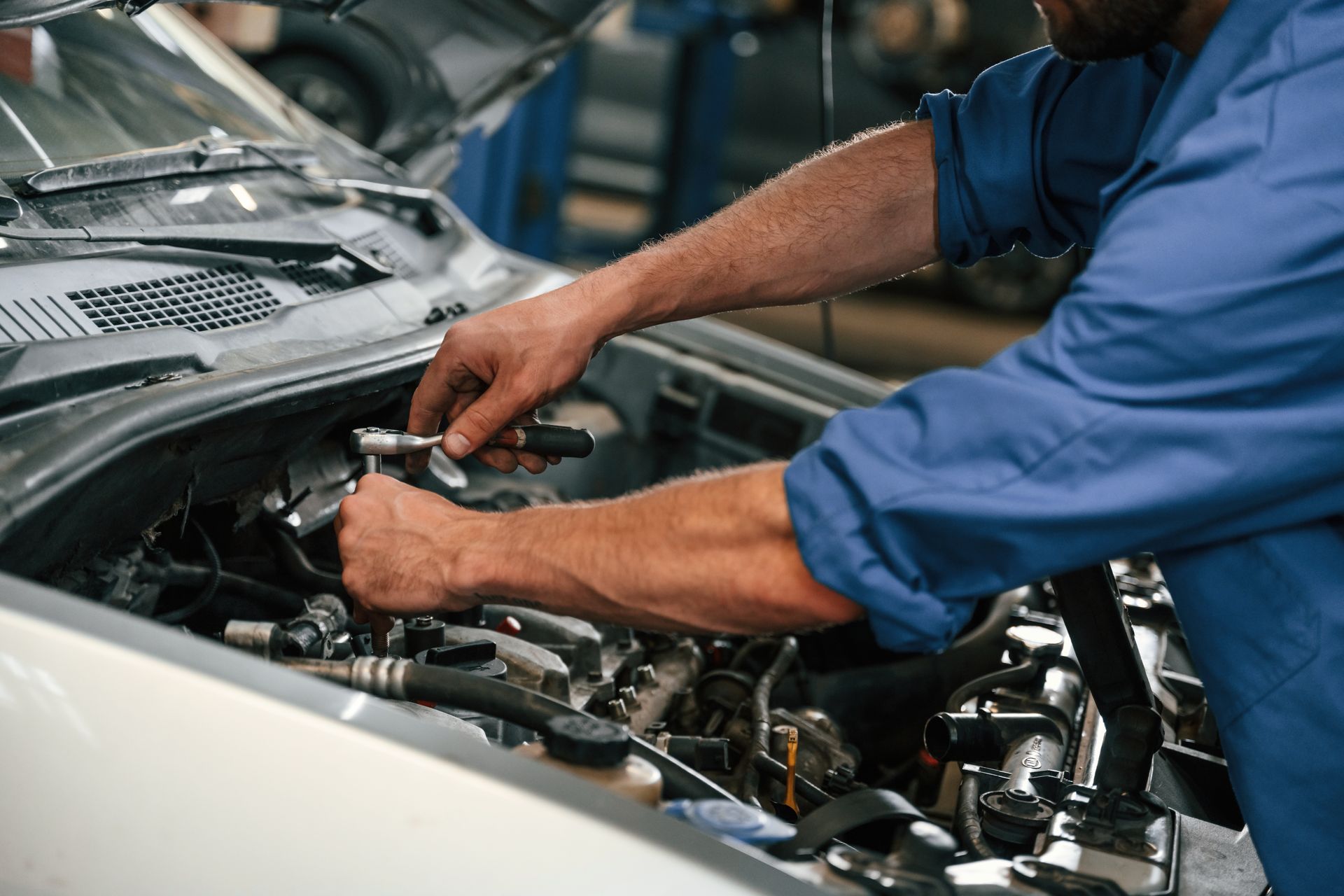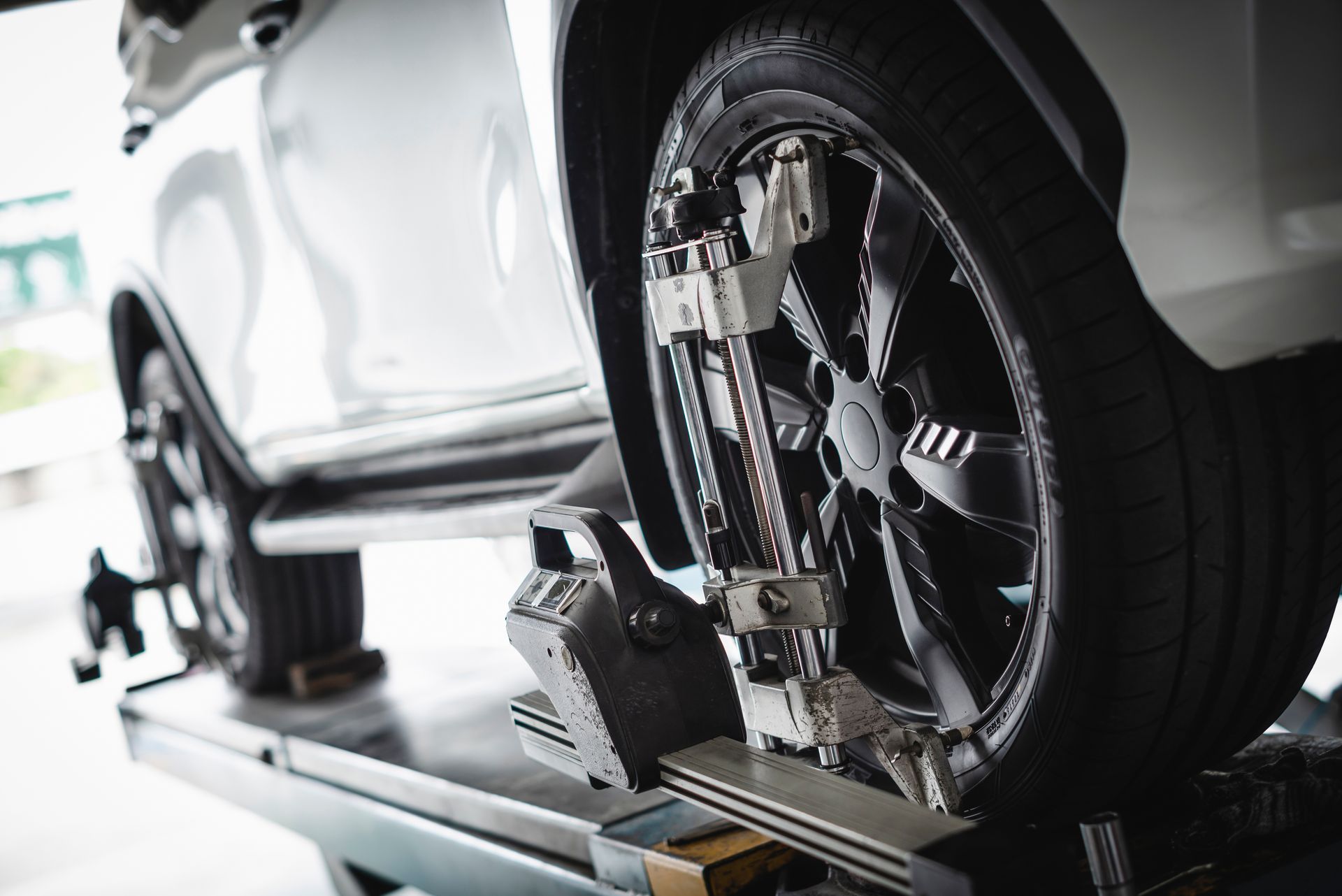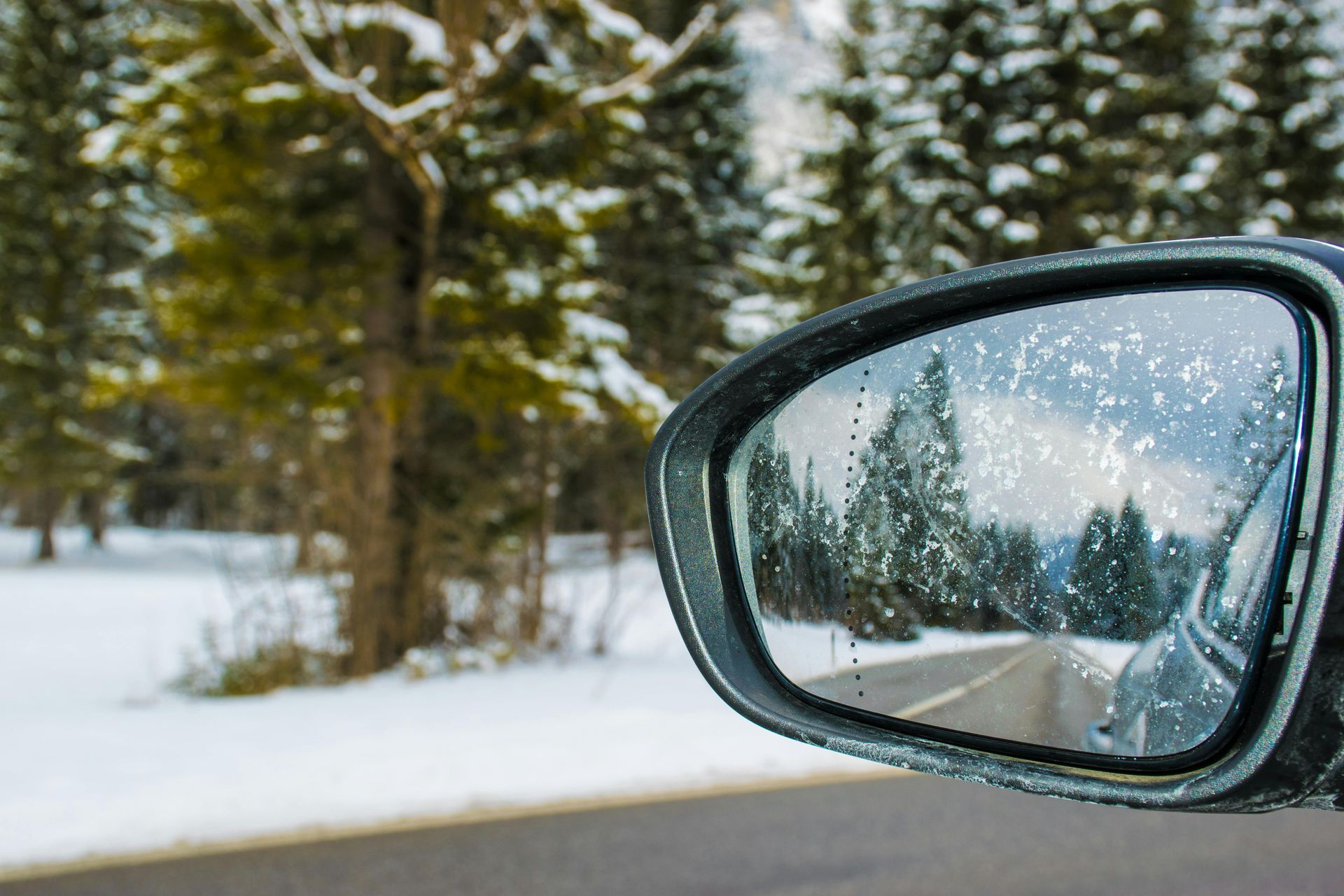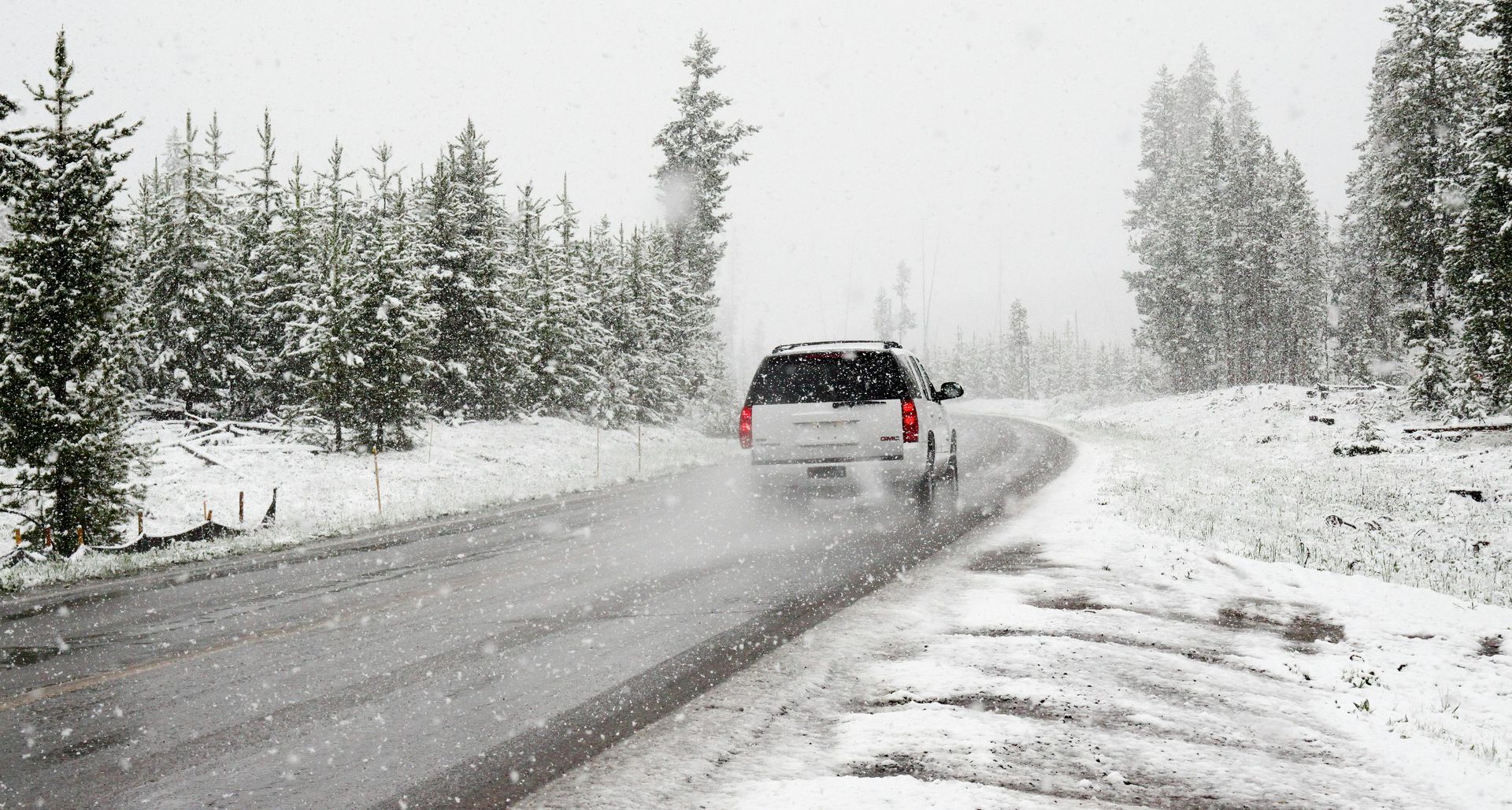Don't Ignore the Signs: Identifying Brake Wear After Summer Driving in Fort Collins
Summer driving around Fort Collins puts serious demands on your brake system. Between climbing mountain roads to Rocky Mountain National Park and descending steep grades from Cameron Pass, your brakes have been working overtime for months. As fall approaches and weather becomes more unpredictable, it's crucial to recognize the warning signs that your brakes need attention before they fail when you need them most.
Colorado's mountain driving creates unique challenges for brake systems. The combination of steep grades, high temperatures, and frequent stop-and-go traffic in destinations like Estes Park can accelerate brake wear far beyond normal city driving. Many Fort Collins drivers don't realize how much stress their summer adventures have placed on their brake components.
Listen for These Warning Sounds
Your brakes communicate their condition through various sounds, and learning to recognize these audio cues can prevent dangerous brake failures. Summer's heat and mountain driving often reveal brake problems that weren't obvious during gentler driving conditions.
Squealing or squeaking sounds typically indicate worn brake pads. Most brake pads include small metal indicators that create this noise when the pad material gets thin. If you hear squealing when braking, especially during your morning commute down College Avenue, your brake pads are telling you they need replacement soon.
Grinding or scraping noises represent a more serious problem. This sound usually means your brake pads are completely worn down, and metal is grinding against metal. This damages your brake rotors and can lead to expensive repairs. If you hear grinding, stop driving immediately and have your brakes inspected.
Clicking or rattling when you brake might indicate loose brake hardware or worn brake pad clips. These sounds often develop after extended mountain driving, where heat and vibration can loosen components over time.
Feel for Changes in Brake Performance
Your brake pedal provides valuable feedback about your brake system's condition. Summer driving around Fort Collins, especially trips involving mountain roads, can reveal problems through changes in how your brakes feel.
Spongy or soft brake pedal often indicates air in the brake lines or worn brake fluid. Mountain driving generates significant heat, which can cause brake fluid to absorb moisture and lose effectiveness. If your pedal feels mushy or goes toward the floor more than usual, have your brake system inspected immediately.
Hard or stiff brake pedal might indicate problems with your power brake booster or restricted brake lines. This problem can develop gradually and becomes more noticeable after demanding driving conditions.
Brake pedal vibration or pulsing usually means warped brake rotors. The repeated heating and cooling cycles from mountain driving around Fort Collins can cause rotors to warp, creating an uneven braking surface. You'll feel this as a pulsing sensation through the brake pedal, especially during highway-speed braking.
Watch for Visual Warning Signs
Several visual indicators can alert you to brake problems before they become dangerous. After a summer of Colorado mountain driving, these signs become especially important to monitor.
Brake warning light on your dashboard is the most obvious indicator. This light can indicate low brake fluid, worn brake pads, or other brake system problems. Never ignore this warning, especially after demanding summer driving conditions.
Brake fluid leaks appear as dark, oily spots under your vehicle where you park. Brake fluid is typically clear to amber colored when fresh but darkens with age and heat exposure. Mountain driving can stress brake lines and connections, leading to leaks.
Visible wear on brake pads can often be seen through your wheel spokes. If the pad material looks thin (less than 1/4 inch thick) or if you can see deep grooves in the rotor surface, it's time for brake service.
Rust or scoring on brake rotors becomes more visible after summer driving. While surface rust is normal, deep scoring or grooves indicate excessive wear that affects braking performance.
Notice Changes in Vehicle Behavior
Summer's demanding driving conditions can reveal brake problems through changes in how your vehicle behaves during braking. Fort Collins drivers who've spent time on mountain roads should pay special attention to these behavioral changes.
Vehicle pulling to one side during braking often indicates uneven brake wear or a stuck brake caliper. This problem can develop gradually and becomes more noticeable after extended mountain driving where brakes experience uneven heating and cooling.
Increased stopping distances might indicate worn brake pads, contaminated brake fluid, or other brake system problems. If you notice you need to press the brake pedal earlier or harder to achieve the same stopping power, have your brakes inspected.
Burning smell after driving, especially after mountain driving, can indicate overheated brakes. While some brake smell is normal after demanding driving, persistent or strong odors suggest problems that need immediate attention.
Understand the Impact of Mountain Driving
Fort Collins' proximity to mountain destinations creates specific brake wear patterns that city driving doesn't typically produce. Regular trips to places like Horsetooth Reservoir, Poudre Canyon, or Trail Ridge Road subject your brakes to conditions they weren't necessarily designed to handle repeatedly.
Steep descents force drivers to rely heavily on brakes to control speed, generating significant heat and accelerating pad wear. The winding road down from Cameron Pass or the descent from Estes Park can stress brake systems beyond their normal operating parameters.
Elevation changes affect brake performance and wear patterns. The air is thinner at altitude, which can affect brake cooling and change how your brake system responds to inputs.
Temperature extremes from mountain driving create expansion and contraction cycles that can warp rotors, crack brake lines, or cause uneven pad wear.
Brake Fluid Needs Special Attention
Brake fluid is often overlooked, but summer mountain driving takes a serious toll on this critical component. Brake fluid absorbs moisture over time, and heat from demanding driving accelerates this process.
Dark or contaminated brake fluid indicates it's time for replacement. Fresh brake fluid is clear to light amber, while old or contaminated fluid appears dark brown or black.
Low brake fluid levels can indicate leaks or normal wear. However, rapidly dropping fluid levels suggest a leak that needs immediate attention.
Brake fluid should be replaced every 2-3 years under normal conditions, but mountain driving may require more frequent changes. The repeated heating and cooling cycles from Colorado mountain driving break down brake fluid faster than normal city driving.
Timing Matters for Brake Service
Fall represents the ideal time to address brake problems discovered after summer driving. Cooler temperatures make brake work more comfortable for technicians, and addressing issues now prevents problems during winter driving when reliable brakes become even more critical.
Don't wait for obvious symptoms to appear. Brake problems often develop gradually, and waiting until you hear grinding or feel significant changes in brake performance can lead to more expensive repairs.
Schedule brake inspections annually, especially if you regularly drive mountain roads around Fort Collins. Professional inspection can identify problems before they become dangerous or costly.
Consider your driving patterns when planning brake maintenance. If you regularly visit mountain destinations or carry heavy loads for camping trips, your brakes need more frequent attention than those of drivers who stick to city streets.
Prevention Saves Money and Lives
Proper brake maintenance is one of the most important safety investments you can make in your vehicle. After a summer of Colorado mountain driving, this becomes even more critical.
Regular inspections catch problems early when they're less expensive to fix and before they compromise your safety.
Quality parts matter, especially for vehicles that regularly tackle Colorado's demanding mountain roads. Premium brake pads and rotors handle heat better and last longer under severe conditions.
Professional service ensures brake work is done correctly and safely. Brake systems are complex and require proper tools and expertise for safe repair.
Your Safety Depends on Reliable Brakes
Don't gamble with brake problems after a summer of demanding Colorado driving. At Total Automotive in Fort Collins, our ASE-certified technicians have been diagnosing and repairing brake systems since 1985. We know how mountain driving affects brake components and can identify problems before they become dangerous.
Our 12-bay facility at 6024 South College Avenue is equipped with the latest brake service equipment to handle everything from simple pad replacement to complete brake system overhauls. Whether you've been climbing mountain roads all summer or just need routine brake maintenance, we'll ensure your brakes are ready for whatever Colorado roads throw at them.
Don't wait until you hear grinding or feel brake problems affecting your vehicle's safety. Call (970) 900-6735 or schedule your brake inspection online today. Your safety and your wallet will thank you for addressing brake problems before they become emergencies.

